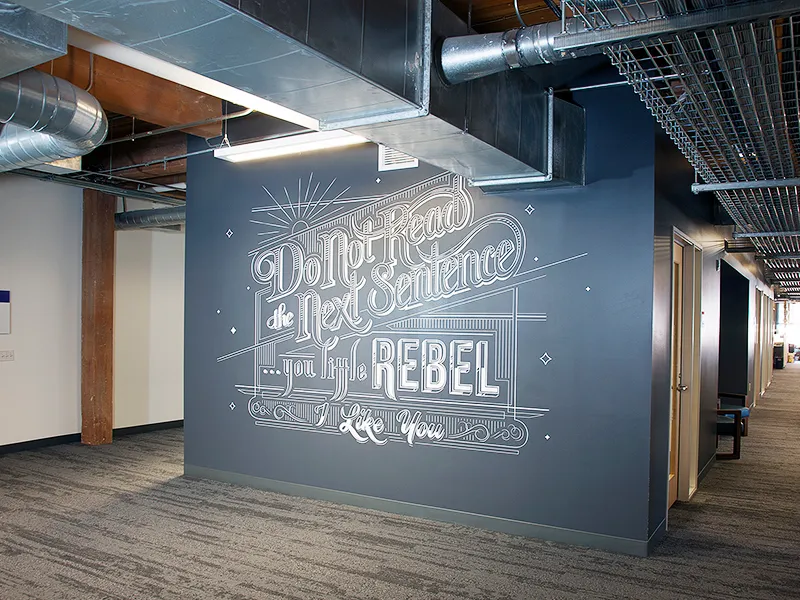Imagine a digital landscape where your online shopping experience is as personalized as a tailor-made suit, as intuitive as a seasoned shopkeeper, and as efficient as a well-oiled machine. Welcome to the artificial intelligence (AI) era revolutionizing Adobe Commerce stores! In this brave new world, AI is not just a buzzword; it’s the secret sauce for turning ordinary e-commerce platforms into extraordinary retail powerhouses.
Adobe Commerce, formerly known as Magento, is leading the charge with its robust and flexible framework, now supercharged with AI capabilities. Picture this: an AI system that understands your preferences better than your best friend, a virtual assistant that offers impeccable customer service 24/7, and an intelligent search engine that delivers exactly what you’re looking for, even if you’re not quite sure what that is. The infusion of AI into Adobe Commerce stores is transforming every aspect of the online shopping experience—from personalized recommendations to dynamic pricing, from fraud detection to streamlined checkouts.
This article explores how AI revolutionizes Adobe Commerce and how developers can drive your eCommerce business to new heights. So, let’s take a look:
Personalization: The Heart of Modern eCommerce
Personalization is no longer a luxury; it’s a necessity. AI has empowered Adobe Commerce stores to deliver highly personalized shopping experiences. Through well-programmed algorithms and data analysis, AI can analyze individual customer preferences, browsing behaviors, and purchasing patterns. This allows stores to offer more personalized product recommendations, discounts, and targeted marketing campaigns.
When customers visit an Adobe Commerce store, AI algorithms analyze their previous interactions, wish lists, and social media activity. This allows the store to present products that align with the customer’s tastes, increasing the likelihood of a purchase. This level of personalization not only enhances the shopping experience but also fosters customer loyalty and retention.
Intelligent Search and Navigation
Today, time is money, and customers expect superfast and precise search results. AI-driven search engines in Adobe Commerce stores ensure that users find exactly what they want with minimal effort. These intelligent search engines utilize natural language processing (NLP) and machine learning to understand and interpret user queries, even if they are vague or misspelled.
A trusted, specialized Adobe Commerce agency like CodeClouds can implement AI-powered search functionalities beyond keyword matching. For instance, if your audience searches for “comfortable running shoes,” the AI can understand the intent behind the query and display various relevant products, including those with high customer ratings, for comfort. This intelligent search capability reduces bounce rates and increases conversion rates by ensuring Lcustomers quickly find what they need.
Chatbots and Virtual Assistants: Enhancing Customer Service
AI-powered chatbots and virtual assistants have redefined customer service worldwide, and the same holds true for Adobe Commerce stores. These intelligent agents are available 24/7, providing instant customer support and assistance. Whether answering product inquiries, guiding users through the checkout process, or handling returns and refunds, AI chatbots can efficiently manage various tasks.
Adobe Commerce developers can integrate advanced chatbots that utilize NLP to understand and respond to customer queries in a human-like manner. These chatbots can also learn from interactions, improving their responses over time. Businesses can save a lot of operational costs by automating routine customer service tasks while ensuring customers receive timely and accurate assistance.
Inventory Management and Demand Forecasting
Effective inventory management means a lot to any fast-growing eCommerce business. AI has greatly developed in this area, enabling real-time inventory tracking and demand forecasting. With AI, Adobe Commerce stores can optimize inventory levels, reduce stockouts, and minimize excess stock.
AI algorithms analyze historical sales data, market trends, and seasonal variations to predict future demand accurately. This allows businesses to make informed decisions about stock replenishment and avoid overstocking or understocking issues. Any experienced Adobe Commerce developer can implement AI-driven inventory management systems that ensure products are always available when customers want them, enhancing customer satisfaction and maximizing sales.
Dynamic Pricing Strategies
Pricing strategies can have many long-term implications for your business. AI enables Adobe Commerce stores to implement dynamic pricing strategies that adapt to market conditions, competitor pricing, and customer demand. By analyzing vast amounts of data in real time, AI can determine the optimal price for each product, maximizing revenue and profitability.
For instance, if an AI system detects a sudden increase in demand for a particular product, it can automatically adjust the price to capitalize on the opportunity. Conversely, if a competitor lowers their prices, the AI can respond by offering competitive pricing to retain market share. These dynamic pricing capabilities ensure that Adobe Commerce stores remain agile and responsive in a competitive market.
Fraud Detection and Prevention
eCommerce businesses are constantly at risk of fraudulent activities. AI has emerged as a powerful tool in detecting and preventing fraud in Adobe Commerce stores. AI algorithms can analyze transaction patterns, customer behavior, and other factors to identify real-time suspicious activities.
An Adobe Commerce agency can deploy AI-based fraud detection systems that flag potentially fraudulent transactions for further review. These systems can also learn from new fraud patterns, continuously improving their accuracy. Businesses can protect their revenue and build customer trust by leveraging AI for fraud prevention.
Enhanced Marketing Campaigns
Marketing is critical to eCommerce success, and AI has revolutionized how businesses approach their marketing strategies. AI-powered tools can analyze customer data to identify trends, preferences, and behaviors. This information can create highly targeted marketing campaigns that resonate with the intended audience.
Adobe Commerce specialists can easily integrate AI-driven marketing platforms that automate various aspects of campaign management, from audience segmentation to content creation. For example, AI can generate personalized email content based on a customer’s browsing history and purchase behavior, resulting in higher engagement and conversion rates. Additionally, AI can optimize ad spend by predicting the best times and channels to reach potential customers, ensuring maximum return on investment.
Visual and Voice Search Capabilities
As technology evolves, visual and voice search capabilities are becoming more prevalent. AI enables Adobe Commerce stores to implement these innovative search methods, enhancing the shopping experience.
Visual search allows customers to upload images of products they are interested in, and the AI system identifies and displays similar items in the store. This is particularly useful for customers who may not know the exact name of a product but have a visual reference.
Voice search, powered by AI-driven voice recognition technology, allows customers to search for products using natural language commands. Any leading Adobe Commerce agency can help integrate voice search functionality, making it easier for customers to find what they need, even when on the go.
Streamlined Checkout Process
The checkout process is a critical point in the customer journey. A complicated or lengthy checkout can lead to cart abandonment and lost sales. AI can streamline the checkout process in Adobe Commerce stores, making it quick and hassle-free.
AI-powered tools can autofill customer information, suggest the best shipping options, and predict payment preferences based on past behavior. Additionally, AI can identify and address issues that may cause friction during checkout, such as slow-loading pages or unclear instructions. By optimizing checkout, businesses can reduce cart abandonment and increase conversion rates.
Sustainability and Ethical Considerations
As consumers become more conscious of environmental and ethical issues, businesses must adapt to meet these concerns. AI can help Adobe Commerce stores implement sustainable practices and promote ethical products.
For example, AI can analyze supply chain data to identify opportunities for reducing carbon footprints, such as optimizing shipping routes or sourcing from sustainable suppliers. AI can also help businesses highlight eco-friendly products and provide customers with information about the environmental impact of their purchases. By leveraging AI for sustainability, Adobe Commerce stores can attract eco-conscious customers and build a positive brand image.
Conclusion: The Future of AI in Adobe Commerce
AI integration is not just a trend; like everything else, this shift is also reshaping the future of eCommerce. From personalization and intelligent search to inventory management and dynamic pricing, AI enhances every aspect of the online shopping experience.
As AI evolves, Adobe Commerce stores will make it even more advanced, driving innovation and growth in the eCommerce industry. By staying ahead of the curve and embracing AI, businesses can create engaging, efficient, and profitable online shopping experiences that may meet the demands of modern consumers.









